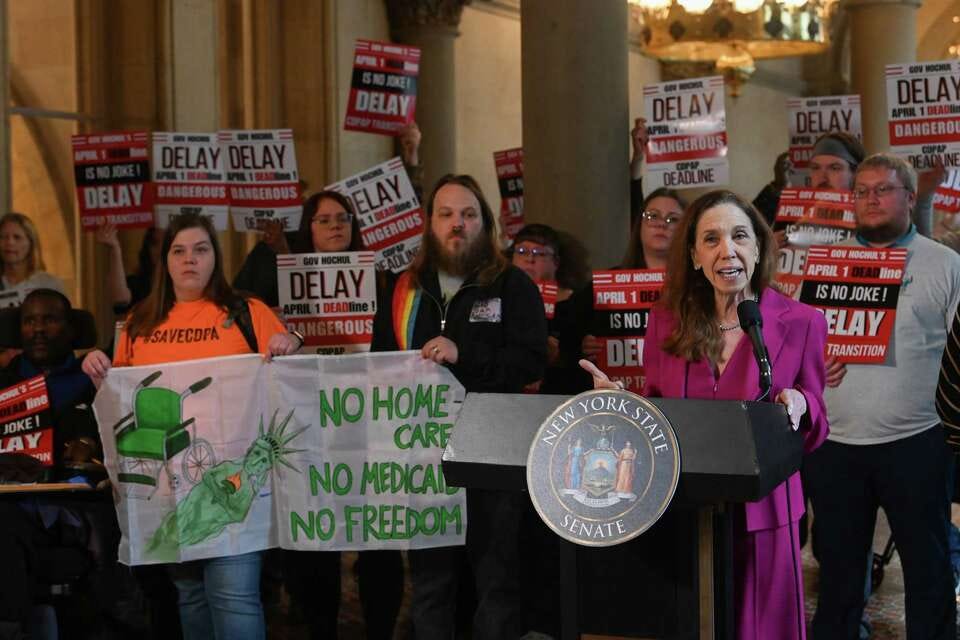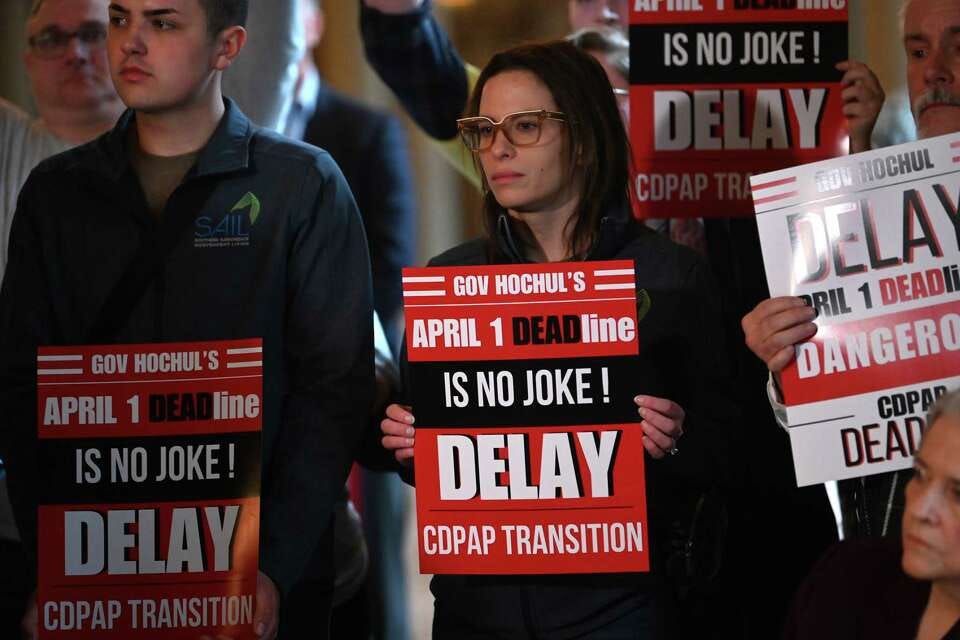Does New York have a backup plan for the CDPAP transition? No one knows
And a new bill would change how New York's highest court considers criminal cases.
Good afternoon — it’s Wednesday and National Grammar Day.
In today’s CapCon:
No one knows if the state has a backup plan if it can’t meet a deadline in four weeks to transition more than 100,000 people in a popular home care program.
The medical cannabis industry says it’s not doing well and wants help from Albany.
Extras: Heastie asked about DOCCS leadership, new poll numbers on Eric Adams and the top 10 consumer complaints of 2024.
On The Bill: Criminal defendants are treated differently by the state’s highest court than civil appeals. This would change that.
🔎 The CDPAP deadline is approaching and no one knows what’s happening
Reporting on the state’s transition of the Consumer-Directed Personal Assistance Program is like watching a car crash in slow motion.
There are more than 240,000 people in New York who use that program, a Medicaid service that allows people who need help with everyday tasks to hire their own personal aides.
All 240,000 of those people use companies that act as fiscal intermediaries with Medicaid to pay their aides. But New York decided last year to require the program’s participants to use a single company instead, Public Partnerships, LLC.
You probably already knew all of that if you’re a regular CapCon reader. But here’s what you may not know.
The transition started on Jan. 6. That’s when the consumers and personal aides in the program could start registering with Public Partnerships. The deadline to register is March 28.
As of Wednesday, more than 100,000 consumers and 100,000 aides had either started or completed that registration process, according to the Department of Health. That’s about 42% of the consumers in the program.
Here’s some back-of-the-napkin math: if the state Department of Health and Public Partnerships have transitioned less than half of the consumers over the last two months, will it be possible for them to register even more than that in the next four weeks?
Here’s the kicker: no one knows if the state has a contingency plan and neither the state nor Public Partnerships will say if one is being developed.
🗣️ A lack of information has allowed opponents to seize on the transition
Government learned a valuable lesson during the coronavirus pandemic. People like to know as much as possible about something that affects their health.
That’s why it’s been frustrating for lawmakers, stakeholders and annoying reporters like me to be clueless about the state’s plan to finish the CDPAP transition. I’m not exaggerating when I say that no one knows what’s happening.
After state health Commissioner James V. McDonald wouldn’t tell lawmakers at last month’s health budget hearing what their contingency plan was, I wanted to know if that had since changed with the upcoming deadline approaching.
I reached out to the Department of Health to ask what would happen to people who hadn’t completed the transition by the March 28 deadline.
Keep reading with a 7-day free trial
Subscribe to Capitol Confidential with Dan Clark to keep reading this post and get 7 days of free access to the full post archives.




